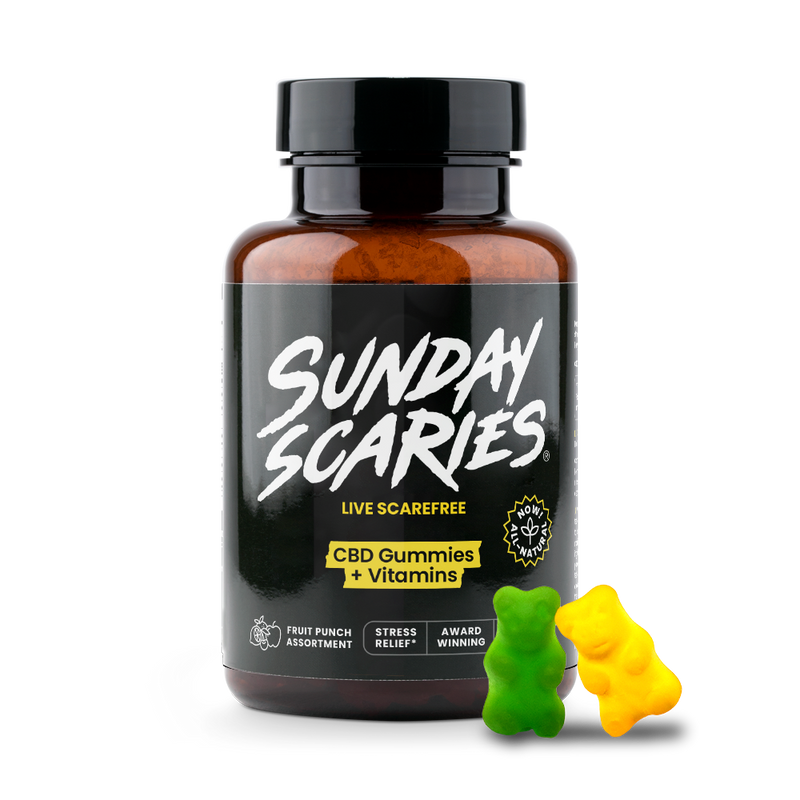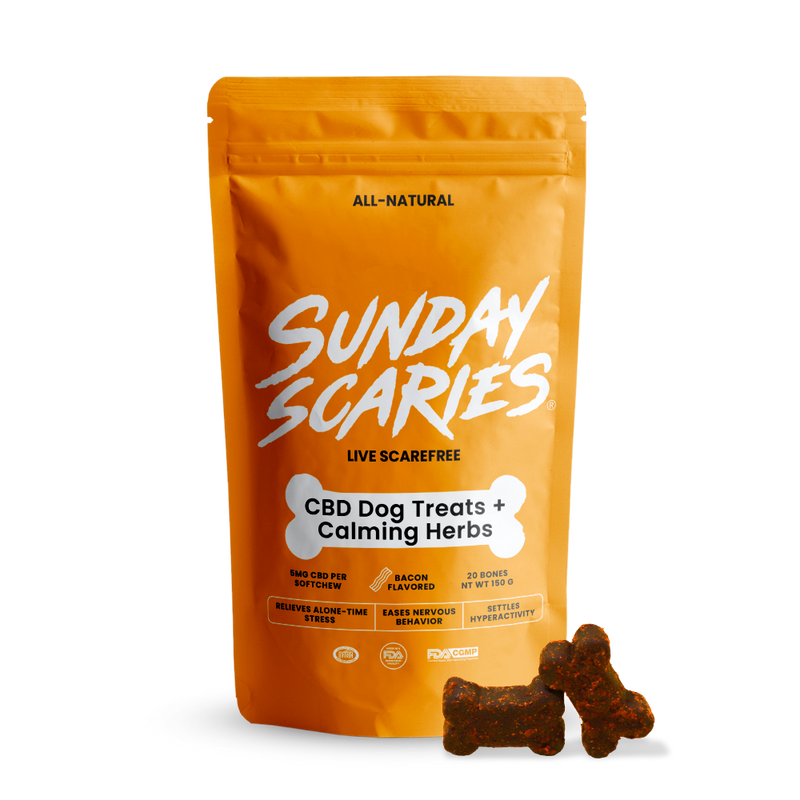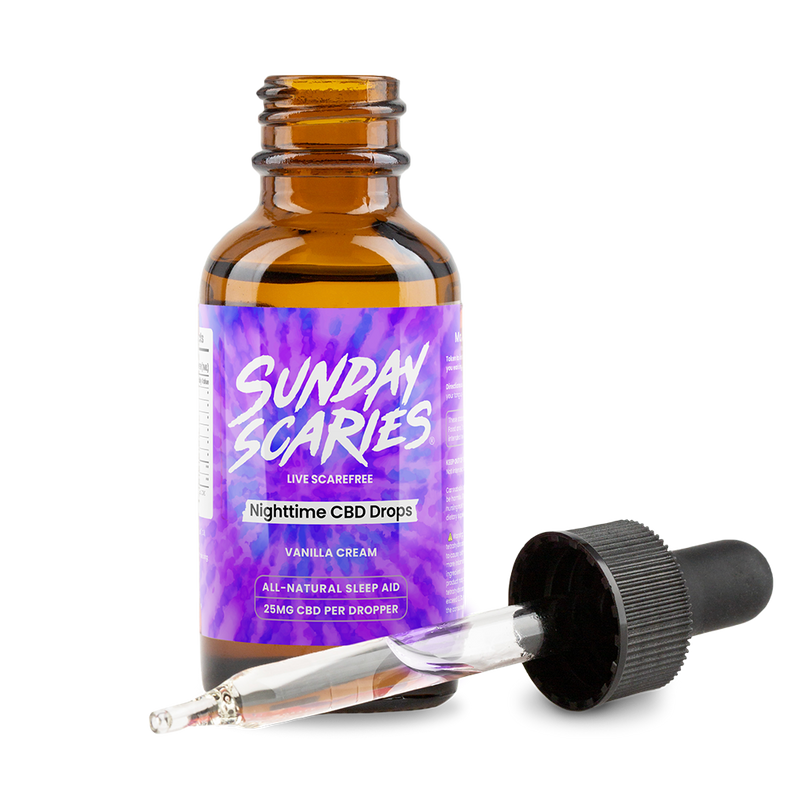
Can You Overdose On CBD Gummies? Understanding the Limits
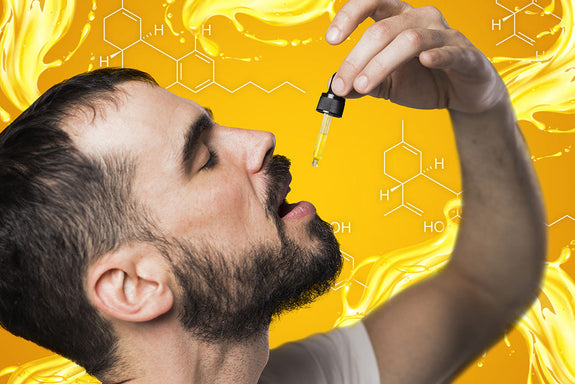
Imagine being able to unlock the therapeutic potential of a natural compound without the fear of overdosing.
Sounds too good to be true, right?
Enter CBD, a non-intoxicating compound derived from the cannabis plant, hailed for its potential wellness benefits.
But, as with any substance, it’s crucial to use it responsibly and understand the limits. This raises the question, can you overdose on CBD?
Key Takeaways
- There is no clinical data showing a lethal dose of CBD exists.
- It’s unlikely to experience a non-lethal CBD overdose, but too much can lead to adverse effects like nausea and dizziness.
- How to responsibly use CBD as high doses can cause uncomfortable side effects in rare cases.
- Monitor your dosage, start low & go slow, and consider taking breaks/rotating products for long term benefits with minimal side effects.
Exploring the Possibility of a CBD Overdose

Is There a Lethal Dose of CBD?
You may be curious if a lethal dose of CBD exists, the answer is no. There’s no clinical data to suggest that a CBD overdose can cause death.
That being said, there have been some reported cases of individuals experiencing severe reactions after taking extremely high doses of CBD such as:
- Disorientation
- Seizures
- Unconsciousness
- Hallucinations
So, responsible use of CBD and adherence to recommended doses can help you avoid such discomfort.
Can you Overdose on CBD? The Non-Lethal Effects
CBD is safe and well-tolerated, as confirmed by the World Health Organization in 2017, when they concluded that: "in its pure state, cannabidiol does not appear to have abuse potential or cause harm."
However, like any substance, overuse can result in cannabidiol adverse effects.
While death is extremely unlikely and undocumented, a non-lethal CBD overdose is technically possible. So when answering the question "can you take too much CBD?", the answer is yes.
If you’ve taken too much CBD, you might experience common uncomfortable symptoms such as:
- Dry mouth
- Dizziness
- Changes in Appetite
- Drowsiness
- Fatigue
In rare instances, if you consume a hefty amount of CBD in a short time, you might experience uncommon symptoms such as:
- Nausea
- Diarrhea
- Vomiting
- Liver issues
- Irritability or anxiety
But don’t worry, these side effects aren’t lethal, and adjusting your dosage to a lower dose should alleviate them.
You’d have to consume an exorbitant amount, around 20,000 mg all at once, to reach a toxic dose.
In fact, according to a study on the Safety and Side Effects of Cannabidiol, a Cannabis sativa constituent, chronic use and high doses of up to 1,500 mg/day of CBD are reportedly well tolerated in humans.
This is far beyond the suggested starting dose and average daily consumption, even for frequent CBD users. Most consumer products fall into the 5mg to 50mg per day range.
And is CBD oil addictive? The answer is no, but responsible use remains paramount. After all, the key to benefiting from any wellness product lies in moderation.
Now, let’s dive deeper into some of these side effects.
The Common Culprits: Dry Mouth and Dizziness
Excessive CBD intake commonly leads to two side effects: dry mouth and dizziness.
CBD may cause your mouth to dry out because it interacts with the cannabinoid receptors in your salivary glands, reducing saliva production.
Dizziness, on the other hand, can occur as a result of a drop in blood pressure caused by CBD.
If you’re experiencing these side effects, here are some tips to help:
- Drink plenty of water to stay hydrated
- Use a moisturizing mouthwash to alleviate dry mouth
- Consider reducing your CBD dosage to see if that helps with the dizziness
The Uncommon Digestive Disturbances: Nausea and Diarrhea
Nausea and diarrhea can also result from taking too much CBD. While the exact mechanism is not fully understood, it’s believed that CBD may interfere with the endocannabinoid system in your gut.
Lower doses of CBD can have a calming effect on the gastrointestinal tract, helping to alleviate these symptoms, but taking too much CBD can have the opposite effect. Here are some other tips:
- Take an over-the-counter medication like Pepto-Bismol
- Drink ginger or peppermint tea
- Apply a heat pad to the stomach area
The Uncommon Psychological Responses: Anxiety and Restlessness
While typically used to alleviate stress, excessive CBD use can ironically cause anxiety and restlessness in rare cases.
Symptoms of this include:
- Restlessness
- Racing heart
- Rapid thinking
- Increased fear or worry
If these symptoms occur, it might be worth seeking advice from a healthcare professional.
Interactions and Implications: CBD and Prescription Medication

Are you aware that CBD can interfere with specific medications? That’s right, CBD can affect the metabolism of some drugs, including:
- Opioids
- Sedatives
- Some types of antidepressants
- Blood thinners like Warfarin
- Immunotherapy agents
Before you decide to mix CBD with other medications, it’s crucial to consult with a healthcare professional to avoid potential drug interactions.
The CYP3A4 enzyme, crucial for drug metabolism and impacted by CBD, is a significant factor to consider.
Understanding CBD's Impact on Drug Metabolism
CBD could potentially interfere with the regular functioning of enzymes vital for drug metabolism. These include cytochrome P450 (CYP) and UDP-glucuronosyltransferase (UGT) enzymes, and P-glycoprotein efflux transporters.
More specifically, CBD can inhibit liver enzymes like CYP3A4 and CYP2C19. These enzymes are vital for breaking down certain drugs, and their inhibition can cause these medications to accumulate in the body.
This underscores the importance of discussing any CBD use with a healthcare professional, especially if you’re currently taking prescription medications.
The Role of CBD in Potentiating or Mitigating Drug Effects
CBD can play dual roles in its interactions with other medications. It may either potentiate (or increase) or mitigate (or decrease) the effects of certain drugs.
For instance, CBD can enhance the effects of medications like blood thinners, heart rhythm medications, thyroid medications, seizure medications, antidepressants, and muscle relaxers.
On the other hand, CBD can also interfere with the effects of antidepressants, benzodiazepines, blood pressure medications, antihistamines, and even alcohol.
This is why it’s crucial to consult with healthcare professionals before combining CBD with any medications.
The alcohol interaction is especially important to consider since CBD is often used to help with hangovers and to cure the Sunday Scaries.
Finding Your Sweet Spot: Determining the Right CBD Dosage

Determining the appropriate CBD dosage can feel like a balancing act. It’s about discovering the ideal amount that provides the desired benefits without any unwanted side effects.
The optimal CBD dosage varies from person to person and depends on multiple factors such as:
- Body weight
- Metabolism
- The severity of symptoms
- The specific product being used
A widespread approach involves starting with a low dose (approximately 5-20mg per day) and incrementally increasing it until you find the optimal level for you.
Starting Low and Going Slow: The Key to Dosage
The mantra “start low and go slow” serves as a beneficial guide for CBD dosage. Beginning with a low dose allows your body to adjust to the CBD and minimizes the risk of potential side effects.
It also lets you monitor your body’s response and adjust the dosage accordingly.
By increasing the dosage gradually, you can find your “sweet spot” - the dose that gives you the benefits you’re looking for without any unwanted side effects.
Choosing a CBD product with high quality CBD oil like 10mg CBD gummies is a very approachable and simple way to begin.
If the CBD product is sourced from a reputable company with 3rd party lab results showcasing the exact amount of CBD in each gummy, you know that what you are consuming is consistent.
Factors Influencing Your Ideal CBD Dosage
Several factors influence an individual’s optimal CBD dosage, including how much CBD one should take.
Body weight is a major consideration, with heavier individuals typically requiring higher doses than lighter ones.
The severity of the symptoms you’re trying to alleviate can also affect the optimal dosage.
See below for a chart showing the recommended therapeutic dose to start with depending on the weight of the human body:
- 80 lbs - 120 lbs: 5 mg of CBD per day
- 120 lbs - 160 lbs: 10 mg of CBD per day
- 160 lbs - 200 lbs: 20 mg of CBD per day
- 200 lbs+: 30 mg of CBD per day
Quality Counts: Selecting Safe CBD Products

Choosing high-quality, safe CBD products is crucial to maximize CBD benefits and minimize potential safety and side effects.
This means choosing products from reputable brands that are transparent about their manufacturing processes and ingredients. It’s also important to look for products that have undergone third-party lab testing, which ensures the product’s safety and efficacy.
The Importance of Third-Party Lab Testing
Third-party lab testing is instrumental in validating the quality and safety of CBD products. These labs provide an unbiased assessment of the product’s contents and purity, ensuring that you’re getting exactly what the label promises.
A certificate of analysis from a third-party lab can provide critical information about the cannabinoid profile, potency, and purity of the product, as well as the presence of any contaminants.
Additionally, it can reveal important physiological and biochemical parameters related to the product’s overall quality.
Reading Labels and Understanding Ingredients
Grasping product labels and ingredients is essential in choosing the appropriate CBD product. CBD product labels should clearly list:
- All the ingredients
- The amount of CBD per serving
- The total amount of CBD in the product
- Dosage guidelines
- The cannabinoid and terpene profile
- The base ingredient of the carrier oil when taking CBD oil
- Any other active ingredients or active substances in the product
- Whether the hemp extract is Full Spectrum CBD oil, Broad Spectrum CBD oil or CBD Isolate
Full Spectrum CBD from hemp-derived CBD products is the best way to promote the most significant effects due to the Entourage Effect, or the synergistic interaction between different compounds found in cannabis and how when these compounds work together. Taken together, they compounds will enhance each other's effects or modify how they interact with the body's endocannabinoid system.
When consuming Broad Spectrum CBD edibles, their is no presence of THC which makes the CBD extract less effective.
When consuming CBD Isolate edibles, all of the other cannabinoids are stripped out so you may need very high doses (between 50-75mg) for it to be as effective as Full Spectrum.
By knowing what to look for, you can ensure that you’re choosing a product that aligns with your needs and preferences.
Beyond Humans: Can Pets Overdose on CBD?

Fortunately, there’s no evidence to suggest that pets can have a lethal overdose from CBD. Pets, much like humans, can also benefit from CBD. However, it’s vital to follow recommended dosages and monitor your pet’s response to CBD, as relevant animal studies are still limited.
Recommended Dosage for Pets
The recommended starting dosage for pets, similar to humans, is typically weight-based. For general wellness, a starting dose of 5mg for dogs weighing 10-50 lbs. is ideal, and a dog weighing 50 lbs. or more should take 10mg.
CBD Dog Treats that are made in a manufacturing facility that is National Animal Supplement Council (NASC) certified is a great starting point to ensure dosing accuracy and pet safety.
Always remember to start with a minimal dose and gradually increase it if necessary, while keeping a close eye on your pet’s response. This approach helps to ensure that your pet reaps the benefits of CBD without any adverse reactions.
Recognizing Signs of Too Much CBD in Pets
How can you discern if your pet has consumed excessive CBD? Some signs to watch out for include:
- Changes in behavior
- Difficulty moving or walking
- Digestive issues like upset stomach, vomiting, and diarrhea
- Unusual lethargy
- Loss of appetite
If your pet exhibits any of these symptoms, they may have consumed too much CBD oil.
In such cases, it’s best to reduce the dosage and consult with a vet if the symptoms persist.
The Long-Term View: Building Tolerance and Sustaining Use
What are the implications of long-term CBD use? With prolonged use, you might notice that:
- Your initial dosage doesn’t have the same effect as before
- Your body can build a tolerance to CBD
- Necessitating an increase in dosage to achieve the same effects
However, continually increasing the dosage is not a sustainable strategy and could potentially lead to negative side effects.
Adjusting Dosage Over Time
As time progresses, adjusting your CBD dosage to account for developed tolerance and maintain desired effects may become necessary. This should be done slowly, starting with a low daily CBD oil dosage and gradually increasing it as needed.
It’s also important to monitor your body’s reaction to the increased dosage and adjust accordingly.
Taking Breaks and Rotating Products
Taking intermittent breaks or rotating among various CBD products is another tactic to maintain long-term CBD use.
Taking a break from CBD use can help “reset” your body’s response, making it more responsive to CBD when you resume usage.
Similarly, rotating between different CBD products like CBD gummies, CBD candy or CBD sleep oil can help prevent your body from becoming too accustomed to a single product, maintaining the effectiveness of CBD over the long term.
Summary
CBD has shown a lot of promise as a natural remedy for a wide range of health conditions. While it’s generally safe and well-tolerated, it’s important to use it responsibly to avoid potential side effects.
There is no known case study showing lethal doses of CBD or research showing that taking too much CBD can be potentially lethal.
If you overdose on CBD the side effects are unpleasant and non-lethal, and the solution is cutting down on your intake or sticking with the recommended dose.
Starting with a low dose and gradually increasing it, selecting high-quality CBD products, and consulting with healthcare professionals can go a long way in ensuring a safe and beneficial CBD experience.
So go ahead, explore the world of CBD, but remember - moderation is key.
Frequently Asked Questions
Can too much CBD make you jittery?
Yes, taking too much CBD can potentially lead to feelings of jitteriness or increased anxiety in some individuals. While CBD is generally well-tolerated and can often be used to counteract the jitters from caffeine intake, some individuals might experience an increase in anxiety or restlessness when consuming excessive amounts of CBD.
Can too much CBD keep you up?
Since CBD can have energizing effects, taking extremely large doses may lead to a restlessness that can keep you up. Microdosing (5mg or less) right before bed may help avoid this issue or you can take a CBD sleep oil that is custom formulated for sleep and enhanced with CBN.
How long does 20 mg of CBD stay in your system?
CBD can stay in your system anywhere from a few hours up to a month, depending on dosage and method of use. On average, when taken orally, it has a half-life of 1-5 days, meaning it takes approximately 85 hours (3.5 days) for the body to eliminate the substance.
What drugs should not be taken with CBD?
Due to its drowsiness-inducing effects, it is not recommended to take CBD with antihistamines, benzodiazepines, antipsychotics, antidepressants, opioids, alcohol or supplements like kava, melatonin and St. John's Wort.
How long does CBD take to kick in gummy?
It typically takes between 20-30 minutes for the effects of CBD gummies to be felt. Sublingual consumption with CBD oil can produce faster results.
How much CBD oil per day is OK?
Daily CBD doses below 70mg are unlikely to interfere with medication, and for extra safety we recommend aiming for between 20 and 50 mg per day. Clinical reviews of studies suggest that people can tolerate doses as high as 1,500 milligrams a day.

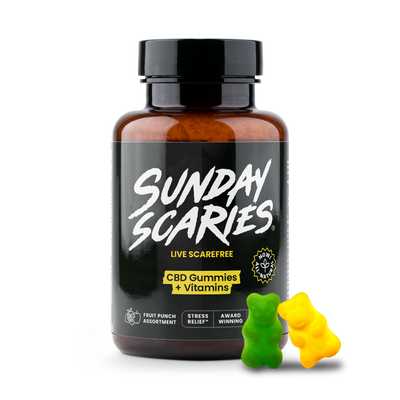 CBD Gummies
Stress Relief
CBD Gummies
Stress Relief
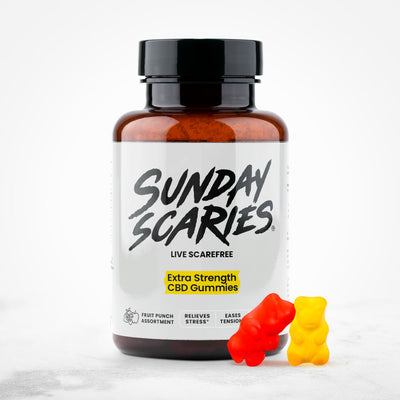 Extra Strength CBD Gummies
Stress Relief
Extra Strength CBD Gummies
Stress Relief
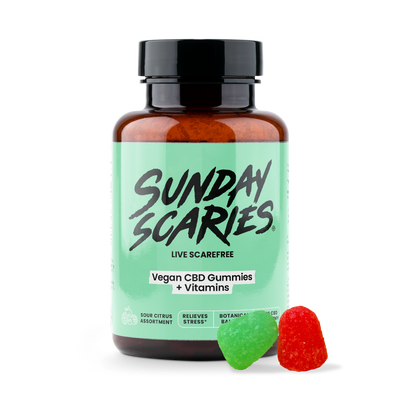 Vegan CBD Gummies
Stress Relief
Vegan CBD Gummies
Stress Relief
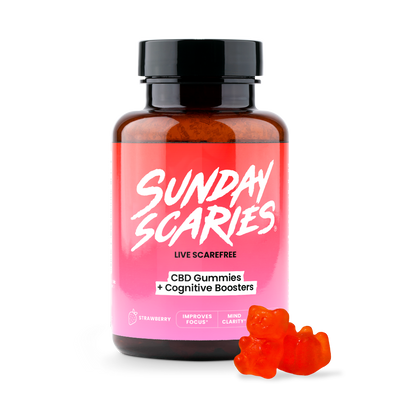 CBD Gummies for Focus
Focus Boost
CBD Gummies for Focus
Focus Boost
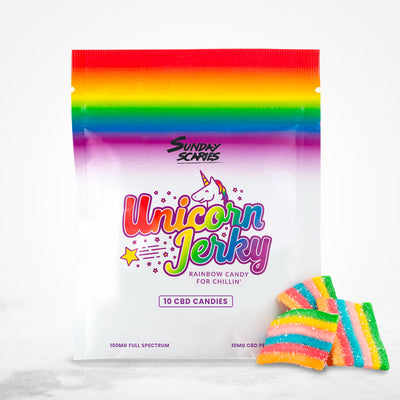 CBD Candy
Mood Lift
CBD Candy
Mood Lift
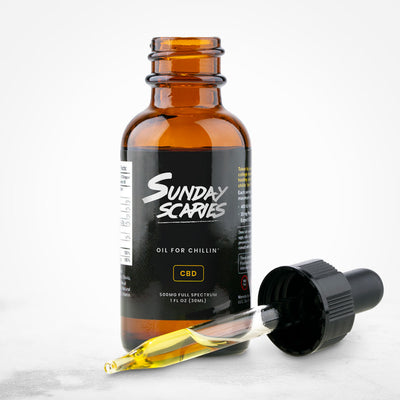 CBD Daytime Oil
Stress Relief
CBD Daytime Oil
Stress Relief
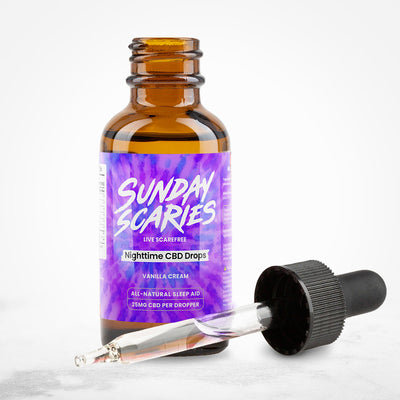 CBD Sleep Oil
Sleep Aid
CBD Sleep Oil
Sleep Aid
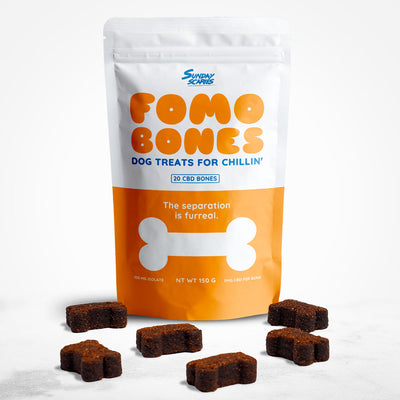 CBD Dog Treats
Stress Relief
CBD Dog Treats
Stress Relief
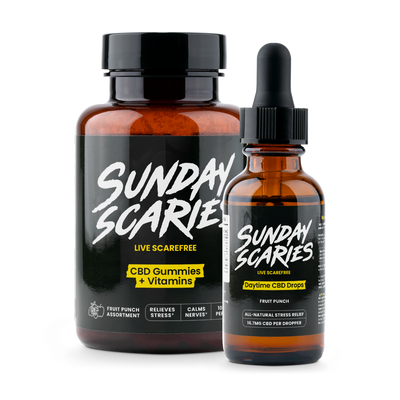 Side Piece Bundle
Stress Relief
Side Piece Bundle
Stress Relief
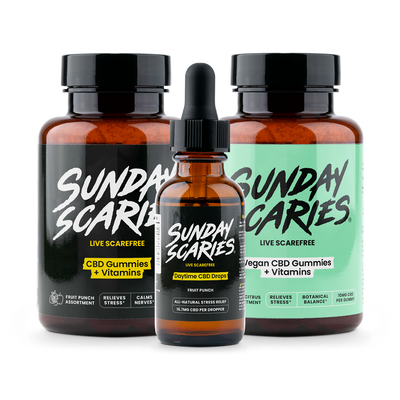 Rando Bundle
Stress Relief
Rando Bundle
Stress Relief
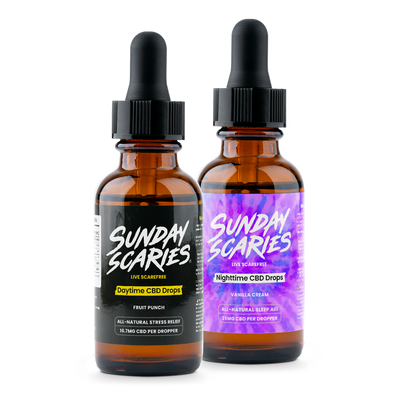 Sunrise & Sunset CBD Oil Bundle
Stress Relief
Sunrise & Sunset CBD Oil Bundle
Stress Relief
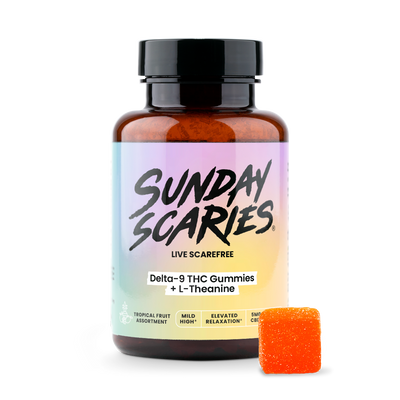 5mg Delta-9 Gummies
Euphoria
5mg Delta-9 Gummies
Euphoria
 10mg Delta-9 Gummies
Euphoria
10mg Delta-9 Gummies
Euphoria
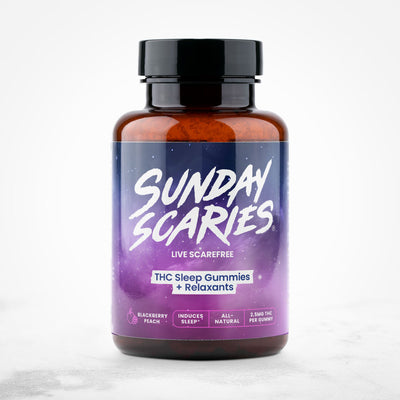 THC Gummies for Sleep
Sleep Aid
THC Gummies for Sleep
Sleep Aid
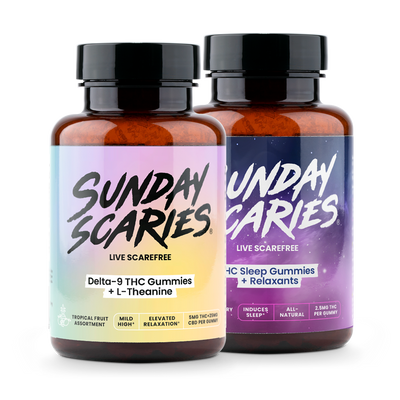 Day & Night THC Gummies Bundle
Stress Relief
Day & Night THC Gummies Bundle
Stress Relief
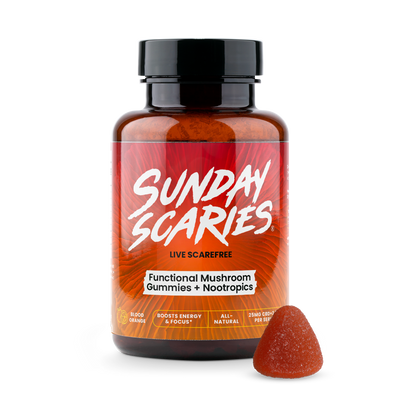 Mushroom Gummies
Focus Boost
Mushroom Gummies
Focus Boost
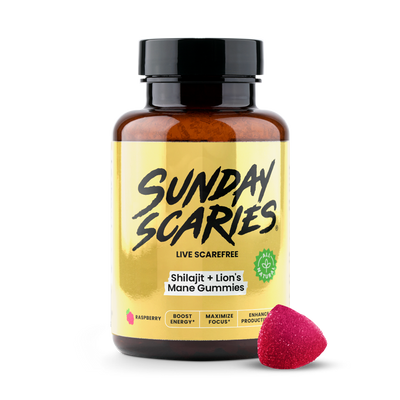 Shilajit Gummies
Focus Boost
Shilajit Gummies
Focus Boost
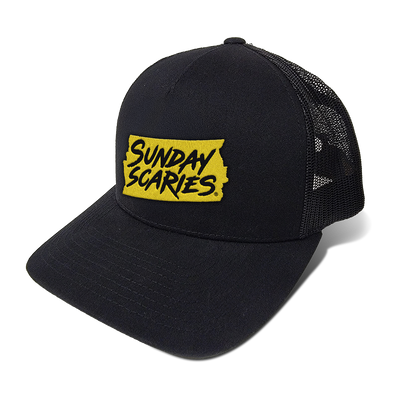 Sunday Scaries Hat
Sunday Scaries Hat
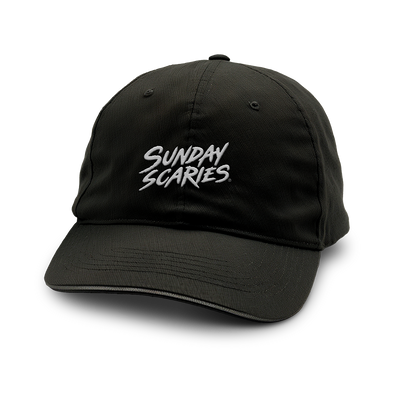 Sunday Scaries Dad Hat
Sunday Scaries Dad Hat
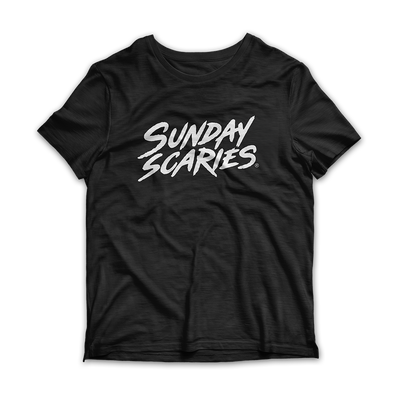 Sunday Scaries T-Shirt
Sunday Scaries T-Shirt
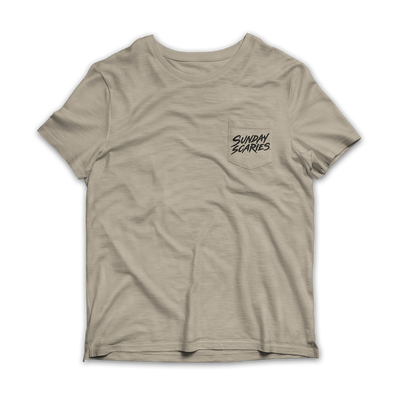 Sunday Scaries Pocket Tee
Sunday Scaries Pocket Tee
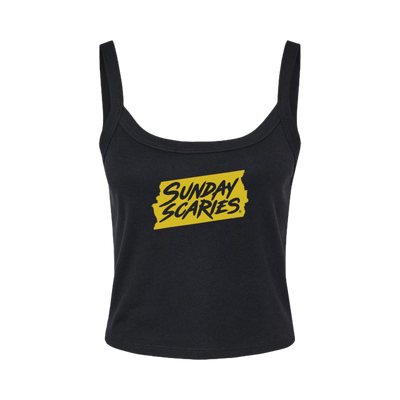 Sunday Scaries Tank Top
Sunday Scaries Tank Top
 Sunday Scaries Sweatshirt
Sunday Scaries Sweatshirt
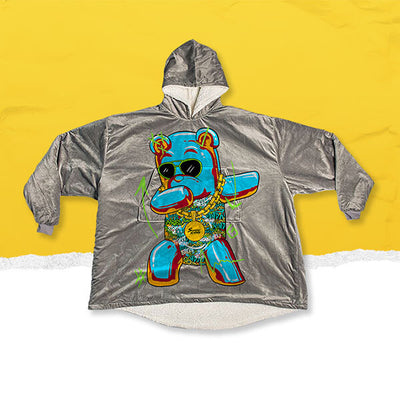 Sunday Scaries Blanket Jacket
Sunday Scaries Blanket Jacket
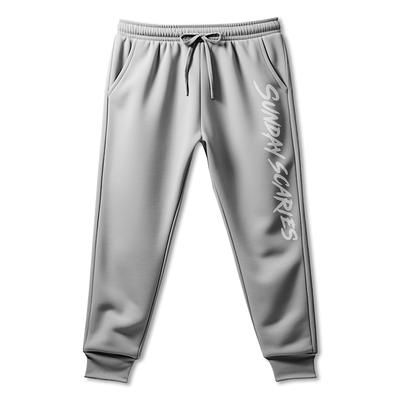 Sunday Scaries Sweatpants
Sunday Scaries Sweatpants

